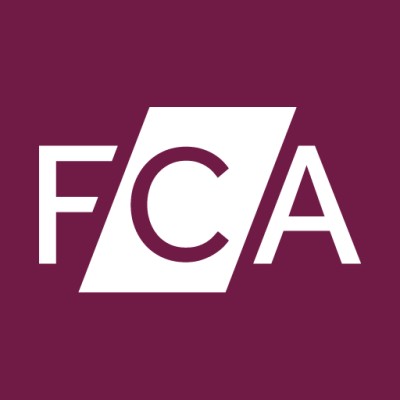The Red Tape Tango: Business and Government in Step for Growth
May 22, 2025, 11:37 am

Location: United Kingdom, England, London
Employees: 1001-5000
Founded date: 1694

Location: United Kingdom, England, London
Employees: 1001-5000
Founded date: 2013
In the dance of economic growth, red tape often leads. It twirls and spins, entangling businesses in a web of regulations. But now, the UK government is calling for a new rhythm. The aim? To cut through the clutter and boost growth. However, the success of this initiative hinges on one crucial partner: the businesses themselves.
Rupert Soames, the president of the Confederation of British Industry (CBI), recently took the stage to emphasize this point. He painted a vivid picture of a golden opportunity. The government’s deregulatory push could be the spark that ignites innovation and enhances international competitiveness. But without the input of those who navigate the regulatory maze daily, this initiative risks becoming a mere waltz without a partner.
The government has made it clear: reducing unnecessary regulation is a cornerstone of its growth strategy. Prime Minister Keir Starmer and Chancellor Rachel Reeves have sent a clarion call to regulators, urging them to devise strategies that will invigorate the economy. This call to action has set the stage for significant changes among the UK's regulatory bodies. Yet, Soames warns that these changes alone won’t suffice. The voices of businesses must be heard.
The relationship between government and business is akin to a dance. Each partner must understand the other's steps. Soames advocates for a more open dialogue about risk appetite, while also establishing clear boundaries to protect consumers and businesses alike. This is not just about cutting red tape; it’s about crafting a framework that supports growth while ensuring safety.
To this end, Soames introduced the Good Regulation Guide, a roadmap for a business-friendly regulatory environment. This guide outlines four key priorities, including a commitment to an outcomes-based, principles-led approach to regulation. It’s a call for a targeted audit of regulatory costs, ensuring that businesses are not weighed down by unnecessary burdens.
The stakes are high. The UK’s economic revival depends on a nimble regulatory environment. Soames emphasizes that reform does not equate to the eradication of rules. Instead, it’s about creating a predictable and fair system that attracts investment. The UK has long been known for its institutional excellence. This reputation must be preserved even as regulations evolve.
The challenge is formidable. As the government seeks to streamline regulations, it must also consider the implications of these changes. A balance must be struck between fostering innovation and maintaining consumer protection. This is where the input from businesses becomes invaluable. They are the ones who understand the nuances of regulation and can provide insights that policymakers may overlook.
Meanwhile, the issue of numeracy in the UK looms large. As the country strives to maintain its status as a financial powerhouse, the skills gap in numeracy threatens to undermine this ambition. Poor numeracy skills have real financial consequences. They create barriers to financial literacy, leaving many individuals struggling to navigate the complexities of the financial world.
The recent findings reveal a troubling trend. While the UK ranks reasonably well in academic numeracy, the reality is more sobering. A significant portion of the population lacks the basic skills needed for financial management. This gap is particularly pronounced among young people and women. As the City of London thrives, a large segment of the population remains excluded from its benefits.
The Financial Conduct Authority (FCA) has highlighted the societal implications of low financial literacy. It’s not just about numbers; it’s about financial inclusion and well-being. Millions of people are left anxious about their financial futures, unable to access the services they need. This is a call to action for both the financial sector and the government.
National Numeracy Day serves as a reminder of the urgent need to address these issues. The theme this year focuses on money, aiming to raise awareness and standards of financial literacy. The financial services sector, with its expertise, is well-positioned to lead this charge. Businesses are stepping up, supporting initiatives to improve numeracy and financial confidence across the UK.
The collaboration between the financial sector and government is essential. As the government formulates its Financial Inclusion Action Plan, it must recognize the role of businesses in fostering a financially literate society. Together, they can create a workforce that is not only competent but also confident in managing their finances.
In conclusion, the dance between government and business is crucial for the UK’s economic future. The push to cut red tape must be accompanied by a genuine partnership with the business community. Simultaneously, addressing the numeracy gap is vital for ensuring that all citizens can participate in the financial landscape. The path to growth is clear, but it requires both partners to be in sync. Only then can the UK truly thrive.
Rupert Soames, the president of the Confederation of British Industry (CBI), recently took the stage to emphasize this point. He painted a vivid picture of a golden opportunity. The government’s deregulatory push could be the spark that ignites innovation and enhances international competitiveness. But without the input of those who navigate the regulatory maze daily, this initiative risks becoming a mere waltz without a partner.
The government has made it clear: reducing unnecessary regulation is a cornerstone of its growth strategy. Prime Minister Keir Starmer and Chancellor Rachel Reeves have sent a clarion call to regulators, urging them to devise strategies that will invigorate the economy. This call to action has set the stage for significant changes among the UK's regulatory bodies. Yet, Soames warns that these changes alone won’t suffice. The voices of businesses must be heard.
The relationship between government and business is akin to a dance. Each partner must understand the other's steps. Soames advocates for a more open dialogue about risk appetite, while also establishing clear boundaries to protect consumers and businesses alike. This is not just about cutting red tape; it’s about crafting a framework that supports growth while ensuring safety.
To this end, Soames introduced the Good Regulation Guide, a roadmap for a business-friendly regulatory environment. This guide outlines four key priorities, including a commitment to an outcomes-based, principles-led approach to regulation. It’s a call for a targeted audit of regulatory costs, ensuring that businesses are not weighed down by unnecessary burdens.
The stakes are high. The UK’s economic revival depends on a nimble regulatory environment. Soames emphasizes that reform does not equate to the eradication of rules. Instead, it’s about creating a predictable and fair system that attracts investment. The UK has long been known for its institutional excellence. This reputation must be preserved even as regulations evolve.
The challenge is formidable. As the government seeks to streamline regulations, it must also consider the implications of these changes. A balance must be struck between fostering innovation and maintaining consumer protection. This is where the input from businesses becomes invaluable. They are the ones who understand the nuances of regulation and can provide insights that policymakers may overlook.
Meanwhile, the issue of numeracy in the UK looms large. As the country strives to maintain its status as a financial powerhouse, the skills gap in numeracy threatens to undermine this ambition. Poor numeracy skills have real financial consequences. They create barriers to financial literacy, leaving many individuals struggling to navigate the complexities of the financial world.
The recent findings reveal a troubling trend. While the UK ranks reasonably well in academic numeracy, the reality is more sobering. A significant portion of the population lacks the basic skills needed for financial management. This gap is particularly pronounced among young people and women. As the City of London thrives, a large segment of the population remains excluded from its benefits.
The Financial Conduct Authority (FCA) has highlighted the societal implications of low financial literacy. It’s not just about numbers; it’s about financial inclusion and well-being. Millions of people are left anxious about their financial futures, unable to access the services they need. This is a call to action for both the financial sector and the government.
National Numeracy Day serves as a reminder of the urgent need to address these issues. The theme this year focuses on money, aiming to raise awareness and standards of financial literacy. The financial services sector, with its expertise, is well-positioned to lead this charge. Businesses are stepping up, supporting initiatives to improve numeracy and financial confidence across the UK.
The collaboration between the financial sector and government is essential. As the government formulates its Financial Inclusion Action Plan, it must recognize the role of businesses in fostering a financially literate society. Together, they can create a workforce that is not only competent but also confident in managing their finances.
In conclusion, the dance between government and business is crucial for the UK’s economic future. The push to cut red tape must be accompanied by a genuine partnership with the business community. Simultaneously, addressing the numeracy gap is vital for ensuring that all citizens can participate in the financial landscape. The path to growth is clear, but it requires both partners to be in sync. Only then can the UK truly thrive.